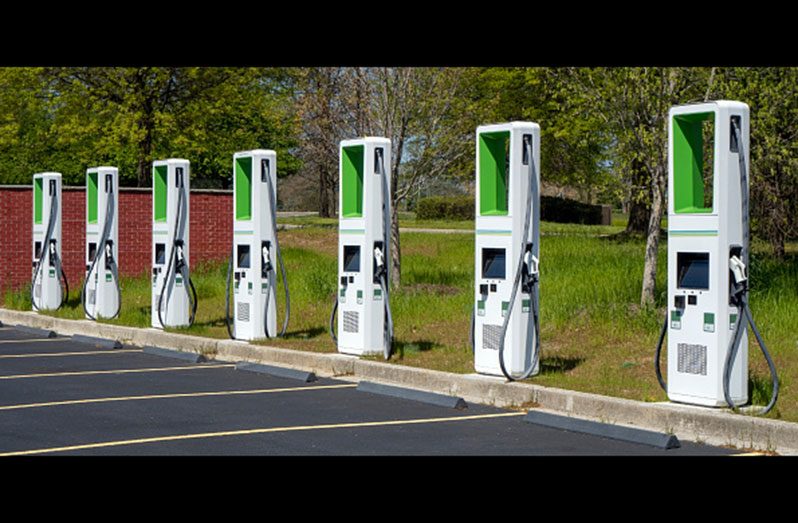THE Guyana Energy Agency (GEA) has issued a tender for a company to supply and deliver six charging stations for electric vehicles.
This move is in keeping with the global shift towards more electric vehicles and sustainable energy use, in response to the detrimental effects of climate change and rising global temperatures.
According to the bidding documents, those stations will serve as a pilot project whereby they will be used for commercial operations across the coastal regions of Guyana, namely in regions Three, Four and Six.
The chargers to be delivered should require an activation process to initiate charging. This can be with a radio frequency identification (RFID) card or smartphone app, often linked to an account which has been set up beforehand, or a cloud-based platform or network offering access via an app and/or RFID card launch charging.
Once activated, the unit will conduct further connection and account checks before commencing the charge of the vehicle.
Charging tariffs will be applied at a cost per energy consumed (dollars per kWh). Alternatively, a price per charging time (dollars per hour) can also be used as a set fee for a charging session.
The supplier is also required to provide training in installation best practices, rate setting, network management, operations, and maintenance of the charging stations. For an efficient payment system, the tender requires that the supplier provides a localised platform in Guyanese dollars.
In addition to the supply and delivery of the unused, upgraded charging stations, the bidder will also be required to provide all technical documentation, including manuals and direction of installation over to the GEA, and provide after-sales services to the agency for at least three years after the supply of goods. The deadline for the submission of bids is May 31, 2022.
Those “greener” vehicles are undoubtedly better for the environment since they emit no greenhouse gases like carbon dioxide. This is a stark contrast to the more polluting fossil fuel vehicles that the world has been supporting for more than a century.
The move to use EVs is already advancing in Guyana. Motor vehicle retailers, as well as citizens themselves have been importing these greener vehicles. Just recently, a citizen imported the first Tesla to Guyana, joining the other 80+ EVs that are driving the streets of the country.
With the tax incentives that the government has implemented on the importation of EVs, it can only be expected that this market will expand and flourish.
The government, under its new and expanded Low Carbon Development Strategy (LCDS) 2030, also sees the importance of putting other measures in place to ensure the smooth use of these vehicles in Guyana. Low-carbon technologies within the transport sector are an important component of Guyana’s LCDS and complement related programmes in areas of cleaner power generation and nature-based solutions.
Among the low-carbon strategies within the transport sector, the LCDS supports increasing efficiency levels of vehicle fuel consumption, and will foster the development of an electric vehicle industry to substitute fossil fuels with electricity.




.jpg)









